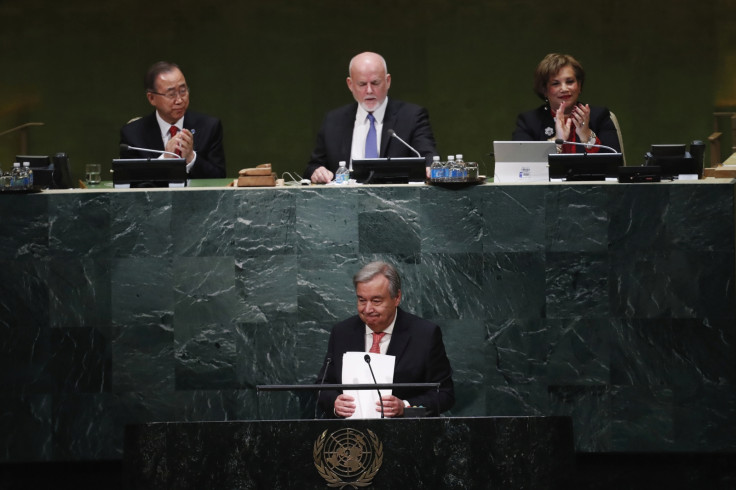Former Portuguese prime minister Antonio Guterres sworn in as new UN secretary-general
Guterres will take over from South Korea's Ban Ki-moon on 1 January.

Portugal's Antonio Guterres was sworn in as the ninth United Nations Secretary-General on Monday, 12 December. Guterres will take over from South Korea's Ban Ki-moon on 1 January, whose second five-year term will end on 31 December.
The 67-year-old former refugee agency chief pledged to help reach peace in conflict-hit areas and reform the 71-year-old world body to become more effective.
"The United Nations needs to be nimble, efficient and effective. It must focus more on delivery and less on process; more on people and less on bureaucracy," Guterres said after taking the oath of office at a ceremony before the 193-member UN General Assembly.
"From the acute crises in Syria, Yemen, South Sudan and elsewhere, to long-running disputes including the Israeli/Palestinian conflict, we need mediation, arbitration as well as creative diplomacy.
"As part of my good offices I am ready to engage personally in conflict resolution where it brings added value," he added.
Guterres – who was Portugal's prime minister from 1995 to 2002 – defeated 12 candidates, seven of whom were women, to secure the post. He said that he aimed to have gender uniformity among senior UN leadership in his five-year term.
According to reports, Guterres will soon announce Nigeria's environment minister Amina Mohammed as his new deputy secretary-general. Mohammed has already worked as Ban Ki-moon's special adviser on post-2015 development planning.
Diplomats said that Guterres is also planning to select a woman as his chief of staff before the end of 2016.
"He's looking for a big shake-up, reshuffle. He's looking to create ... a different feeling, with the under-secretary-generals much more part of a collective leadership of the UN," a senior UN diplomat said.
"Having what he calls a cabinet, like when he was prime minister, his senior officials would come together every week and collectively they would have responsibility for the totality of the organisation," the diplomat added.
Guterres was appointed by the General Assembly on 13 October. Usually the selection of a UN secretary-general is decided behind closed-doors by a few powerful countries; however, this time the selection involved public discussions with each candidate seeking the leadership position.
© Copyright IBTimes 2025. All rights reserved.



















